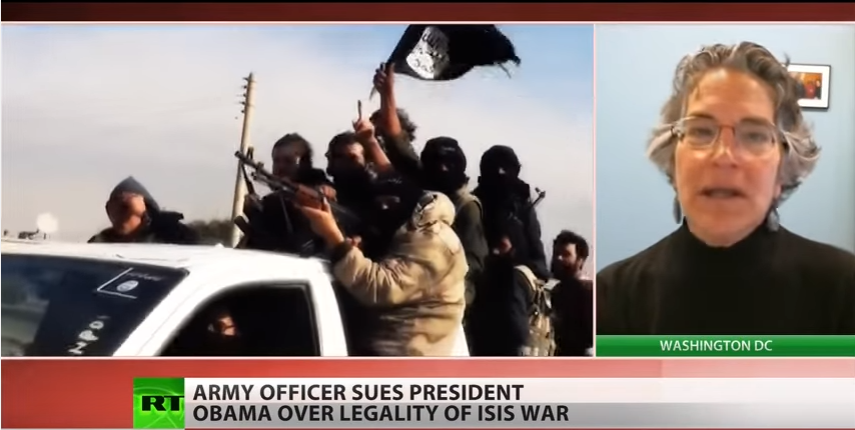A U.S. army officer is suing the Obama administration, claiming the U.S. war against the Islamic State is illegal because it was not authorized by Congress.
“This is a political question much more than a legal question,” IPS Middle East expert Phyllis Bennis told RT America.
The administration has had two responses to the claim argued by Captain Nathan Smith, according to Bennis. For one, they maintain that the War Powers Act refers to hostilities and that troops are not being sent into hostilities. At the same time, they claim that the original authorization for the use of military force that was signed by President George W. Bush after 9/11 has language that authorizes the use of force against those responsible for the attacks of Sep. 11, which they say applies in this case.
“The problem of course,” Bennis said, is that ISIS didn’t exist at that time, and “the precursor to ISIS, Al-Qaeda in Iraq (AQI), wasn’t part of Al-Qaeda at that time and also didn’t exist, but because it used the name later, somehow that makes it all okay.”
While Congress has not authorized the war against ISIS, it has passed military appropriations bills that fund those combat operations.
Bennis said that Republicans don’t want to pass a resolution because “they don’t want to acknowledge the fact that President Obama is doing exactly what they want—escalating the so-called Global War on Terror.” Meanwhile, Bennis explained, the Democrats don’t want to vote in favor of a war that’s unpopular with their base, but they also don’t want to vote against their president.
“The problem that the administration has is that Obama says ‘please vote for an authorization, but if you don’t, I think I have enough authorization from the old one, so you don’t really have to.’ So it’s a very ambiguous, politically driven position.” Bennis said.
Smith is using the question of lack of authorization as the basis for his challenge, but there is a chance that he could also raise issues of illegality in how the war is being carried out, Bennis said.
“Questions of the use of torture in interrogation; questions of the attacks on civilians; questions of the drone wars that target individuals that are, in the view of many around the world, extrajudicial assassinations—all of these could be brought into this case.” Bennis said.
